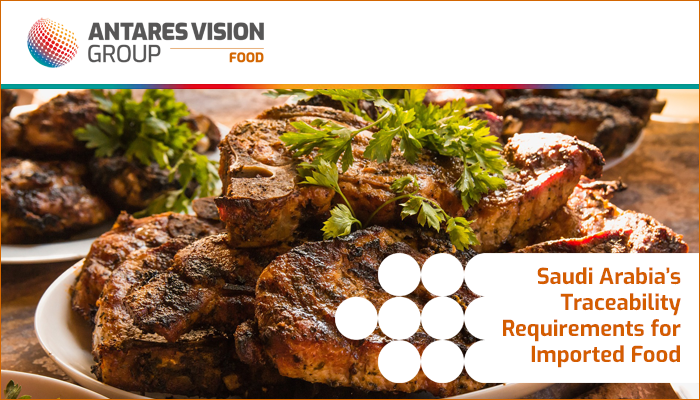The Kingdom of Saudi Arabia imports about 80 percent of its food, according to a June 2020 report from the U.S. Department of Agriculture. To prevent food-borne illnesses and increase visibility in the food supply chain, the Saudi Food and Drug Authority (SFDA) strictly regulates imported food.
Let’s take a look at what food companies must do to comply with SFDA regulations when shipping their products to Saudi Arabia.
Saudi Arabia’s requirements for imported food
The Department of Agriculture report lists the following import procedures. First, companies must create an “E-account” with the SFDA and register their food products. They must have a Commercial Register, which includes imports and distribution of food
products. They must also submit an original invoice certified by a chamber of commerce in their home country. Last, depending on the product being imported, the may be asked to present some of following certificates:
- Certificate of origin (copy)
- Halal certificate (original). A Halal certificate is proof that the product meets Islamic Law requirements and is acceptable for consumption in Muslim-majority countries, as well as Western countries with a large Islamic population.
- Certificate of slaughtering for meat and poultry (original)
Other requirements for imported food items
The GCC Standardization Organization (GSO) was established in 2001 and began operations in 2004. It is exactly what its name says: a standards organization for Gulf Cooperation Council (GCC) members. GSO requirements for Saudi Arabia’s imported foods are listed below. Many of these regulations also apply to domestic food items.
GCC Standards Organization (GSO) 9/2007
Since the end of 2010, Saudi Arabia has enforced the Gulf Standard 9/2007. Per this standard, all prepackaged and domestic foods must at minimum contain the following data points:
- Product name
- Packer’s name
- Country of origin or manufacture
- Listing of ingredients
- Instructions for use (if applicable)
- Shelf life
GSO 2233/2018 requirements for nutritional labeling
In 2013, the SFDA began enforcing GSO 2233/2012, a regulation from the GSO that requires labels to clearly disclose a product’s nutritional information (e.g., calories, carbohydrates, proteins, and fats) that may affect its nutritional value and consumers’ health or safety. The labels must list the ingredients, and nutritional information must be presented in a standardized, easy-to-read table so customers can readily understand what they’re purchasing. The labeling is also designed to increase people’s nutritional education to improve overall health. Some products are exempt from labeling, including bottled water, fresh fruits and vegetables, one-nutrient foods such as rice and coffee, and foods for special dietary uses, including infant formula.
Final thoughts
Keeping up with food traceability and regulations in Saudi Arabia — or any market — is a challenge. But rfxcel can help. Our solutions for food and beverage cover everything from farm to fork, from compliance to environmental monitoring. Contact us to book a demo of our award-winning rfxcel Traceability System and see how this customizable, scalable platform will simplify and accelerate all of your supply chain operations.





